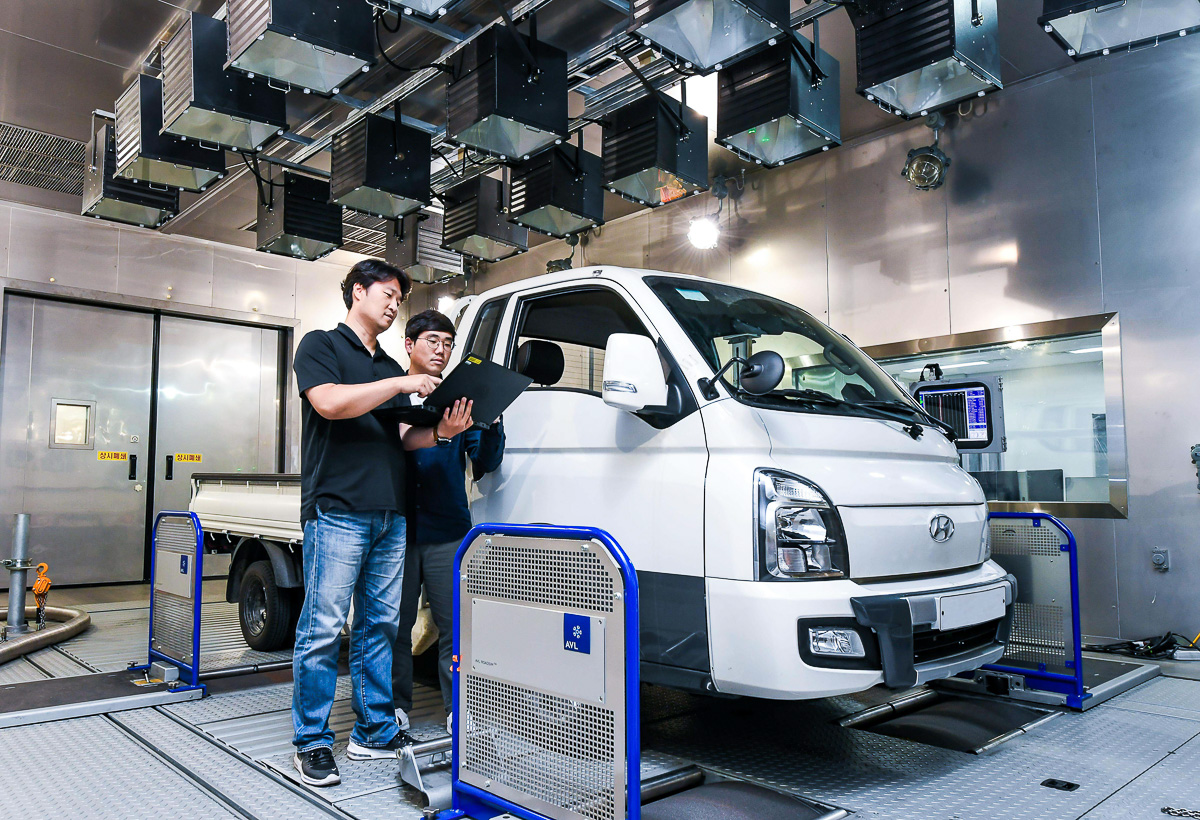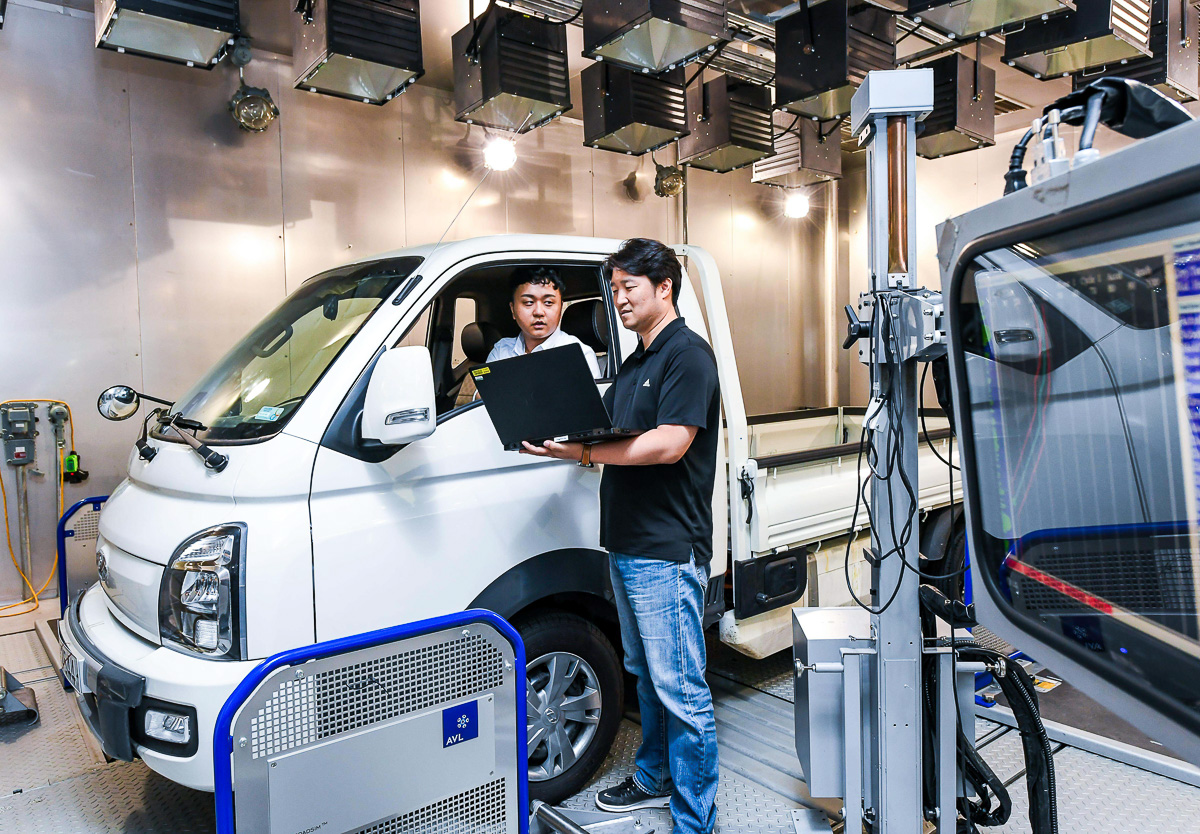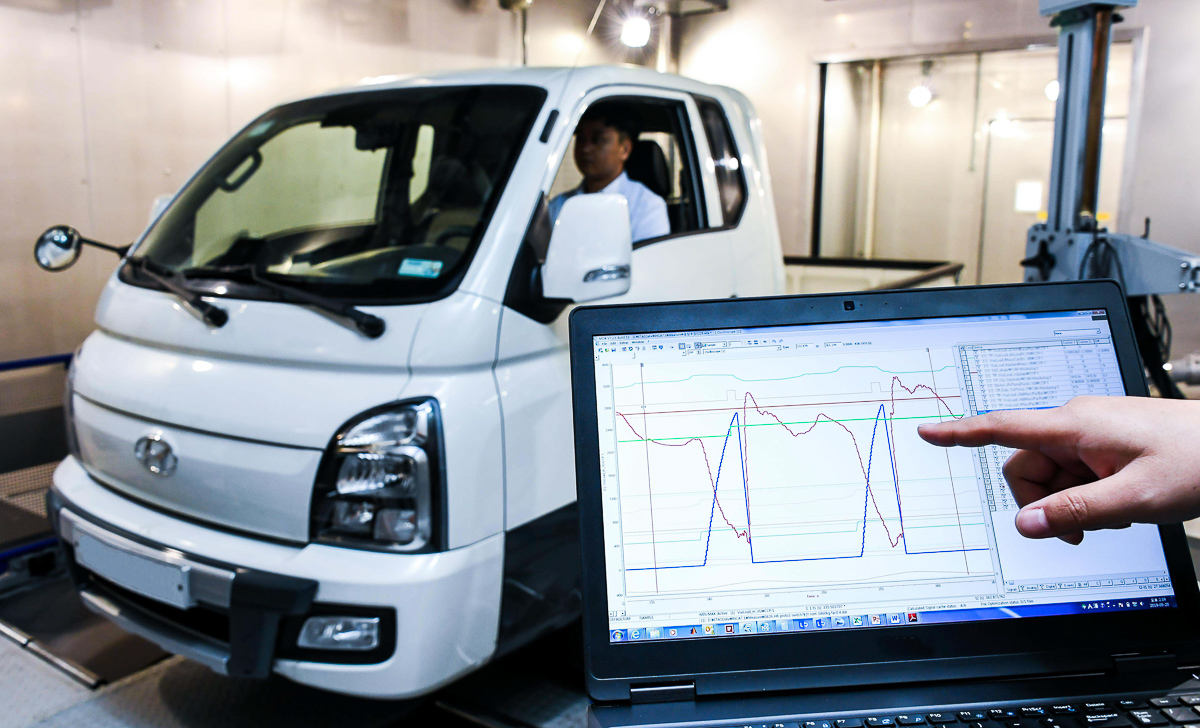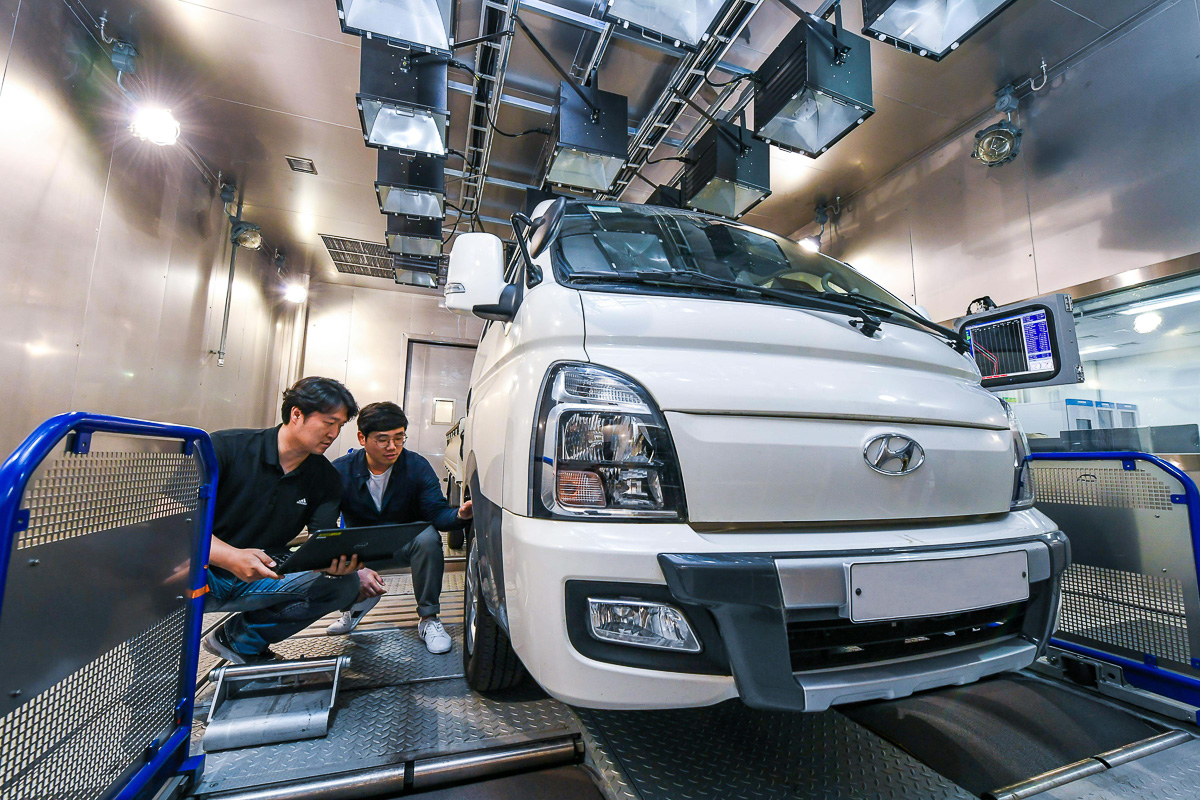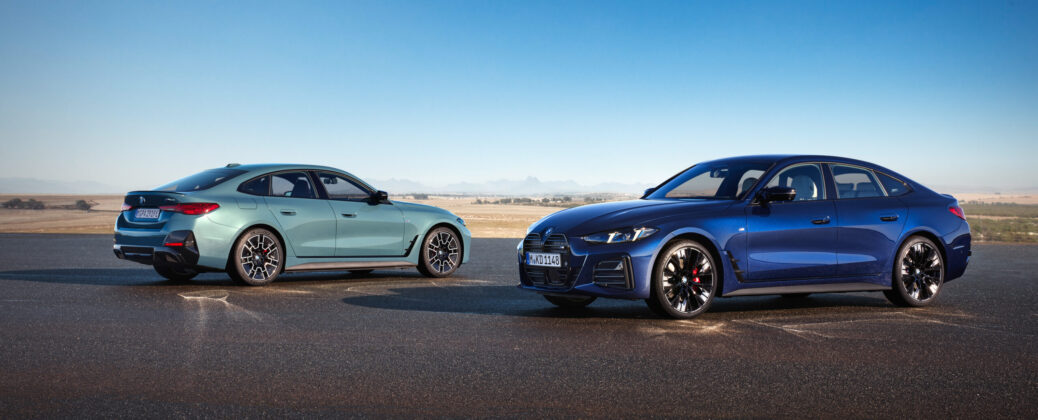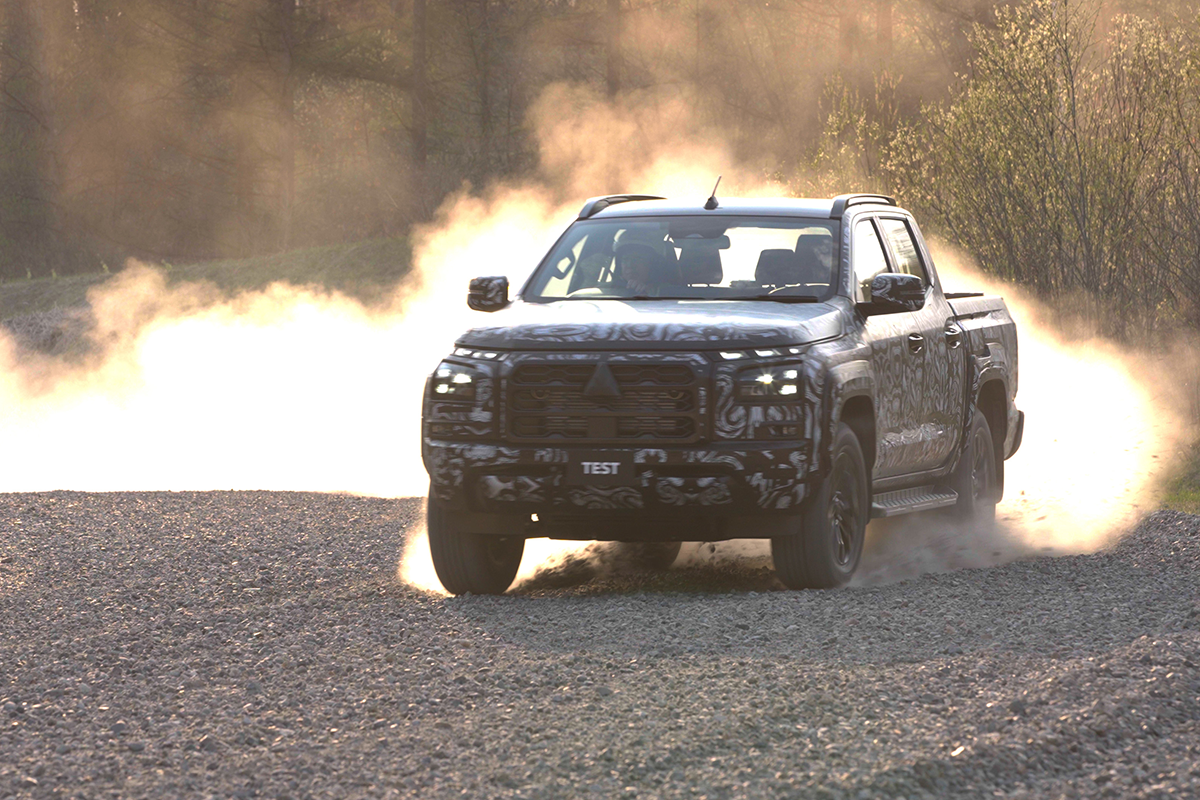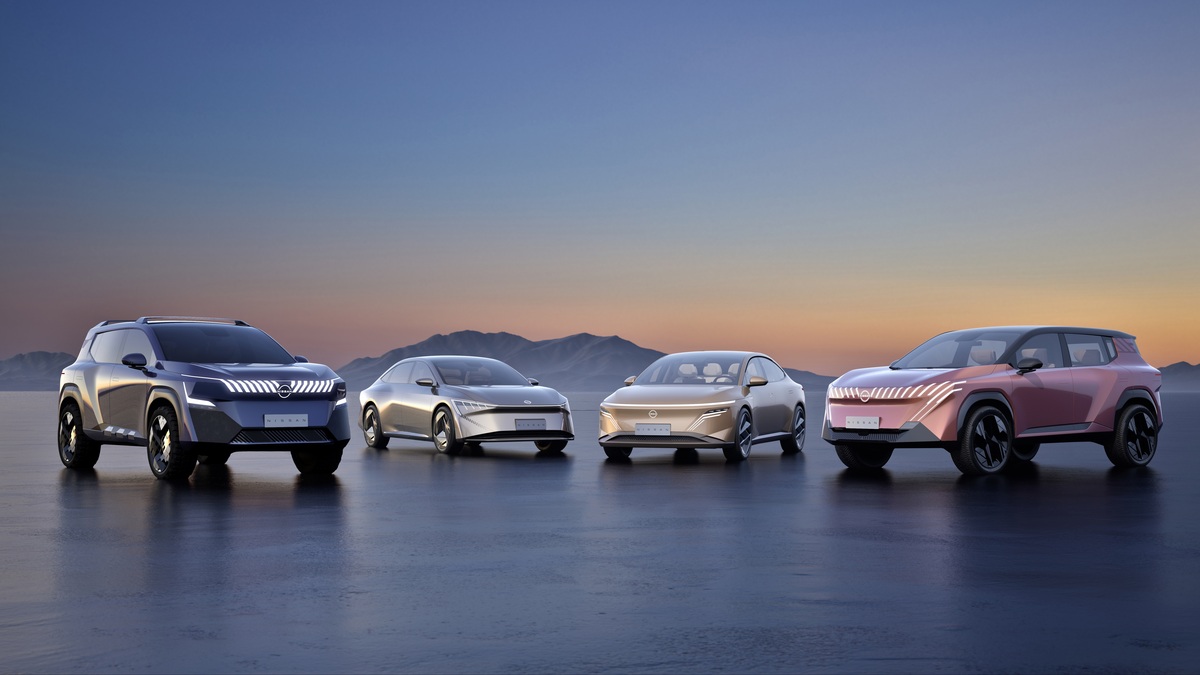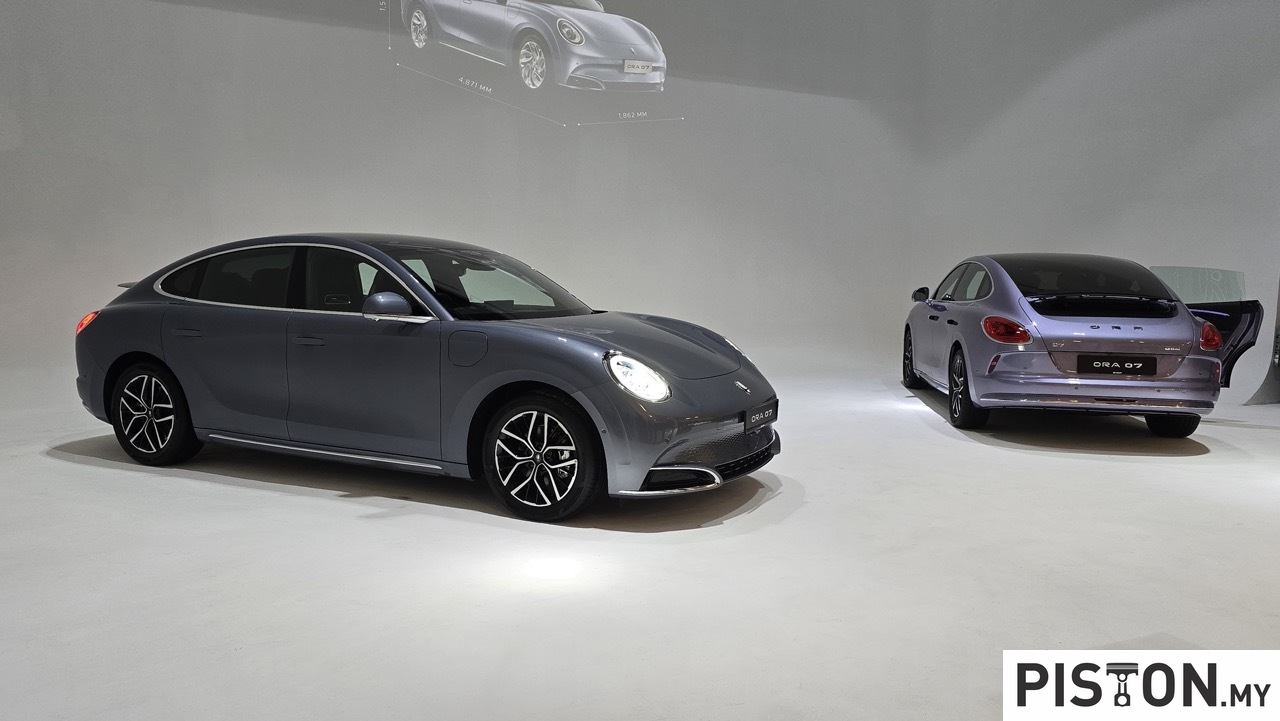Hyundai Motor Group is upping their tech game with the introduction of the world’s first performance control for commercial EV complete with the ability to determine the gross weight of light duty commercial electric vehicle and optimizing their performance.
The South Korean giant in the industry was able to achieve this by utilizing acceleration sensors to optimize the vehicle’s settings based on current gross weight estimate. This technology is being considered by Hyundai Motor Group for use on future light duty electric commercial vehicles.
Why is this important? Well, the power and torque output of any electric vehicle coincides with their estimated range of travel. In short, the more power it churns out for higher performance, the shorter the range of travel it can go.
By determining the vehicle’s gross weight first means that the tech will be able to set and tune the EVs which result in reduction of potential wheel spin and reduced traction (which sometimes happen when carrying less payload).
The new technology also allows for changes in torque output based on topography, altering the amount of torque needed to propel a vehicle uphill based on its gross weight and allowing small business owners to effectively reduce unnecessary vehicle-related costs.
According to Chae Mo Yang, Group Leader of Eco-Technology Performance Development Group, “Hyundai developed this technology because we realize that we need to take a different approach when it comes to developing electric vehicles for commercial use.”
“We are preparing for a future where we will be able to offer commercial EVs that operate at its optimum specifications under any given road condition and regardless of how much payload it is carrying. These vehicles will be very economical to operate.”
In theory, overall efficiency is increase and drivers can estimate their vehicles’ maximum travel distance by adjusting the torque output. Specifically, the potential vehicle range estimate is based on the accurate measurement of the current weight and speed of the vehicle, enhancing efficiency for commercial use.


